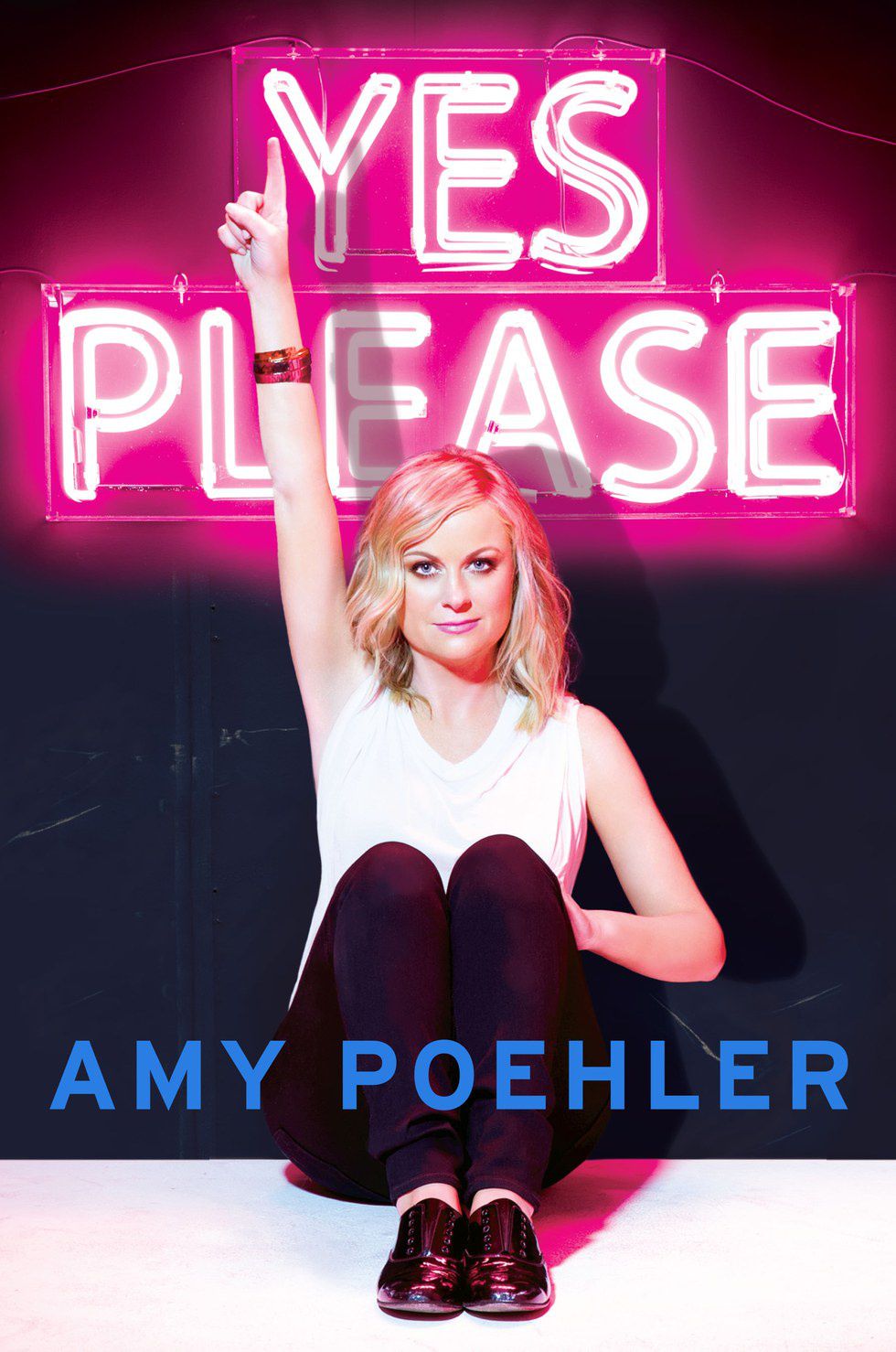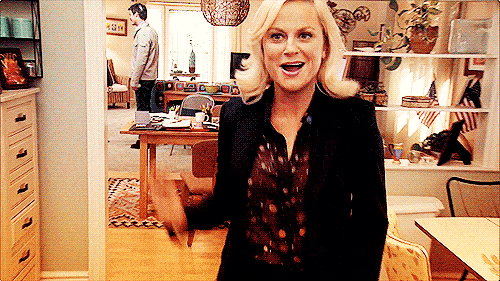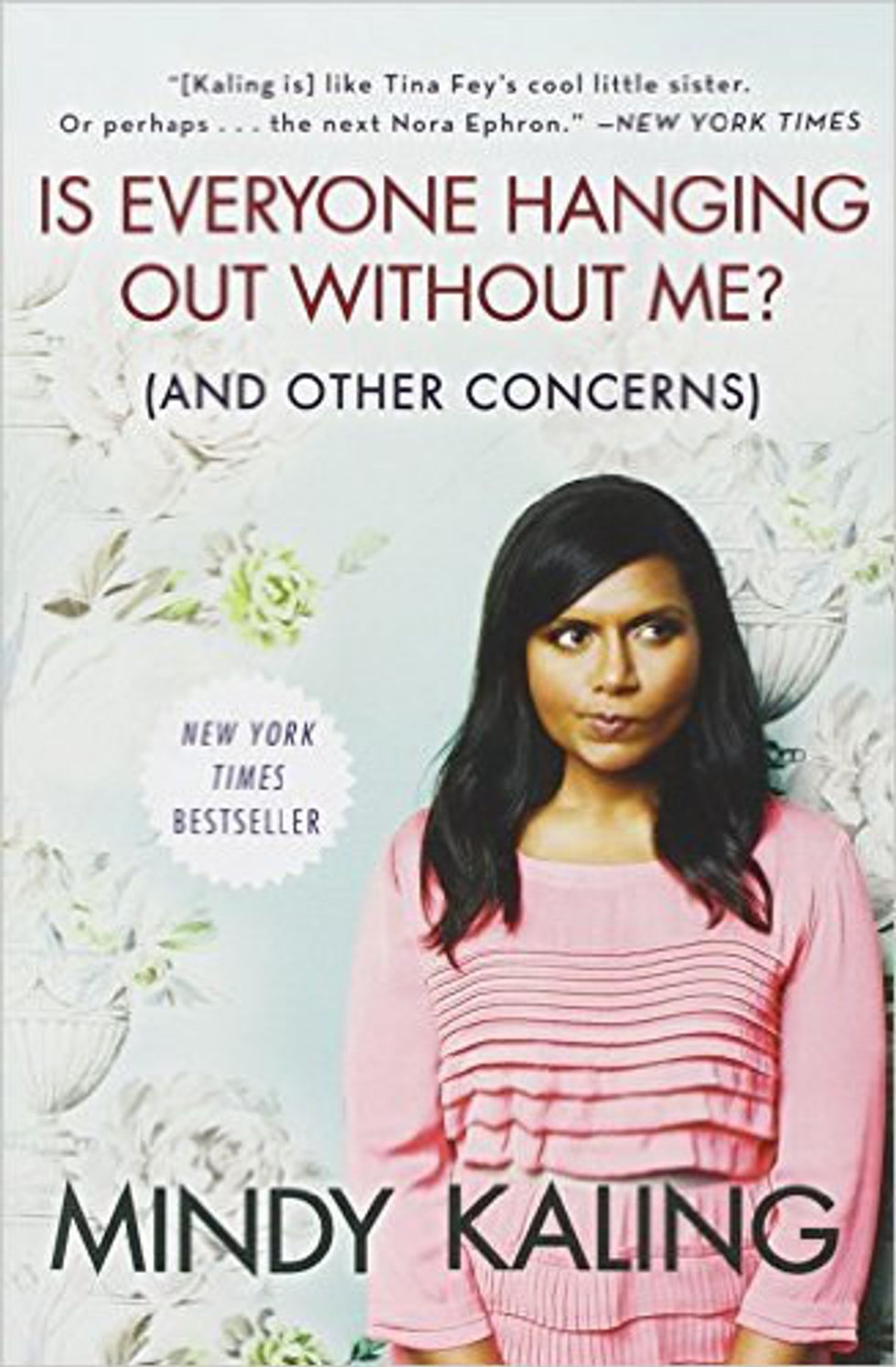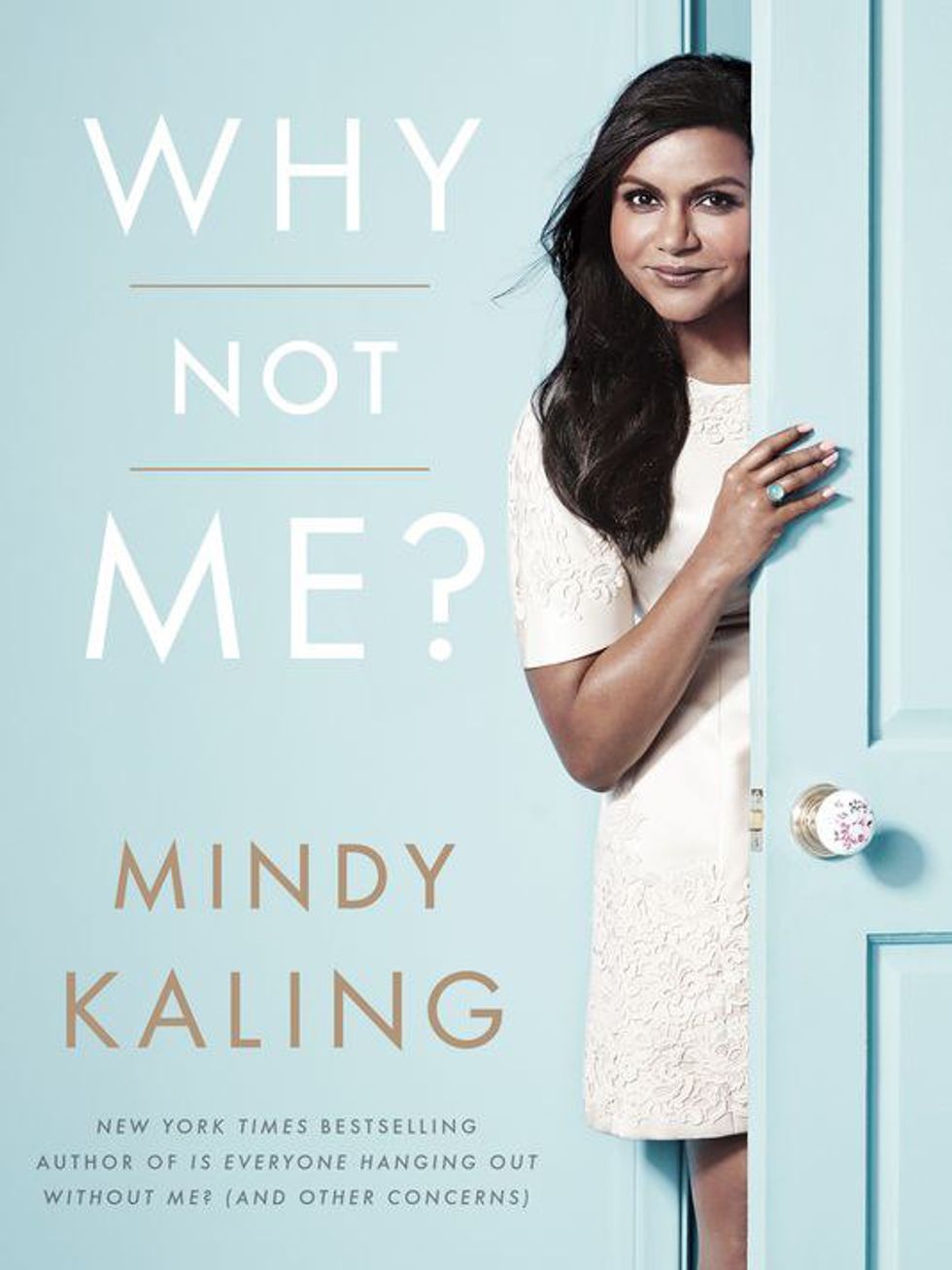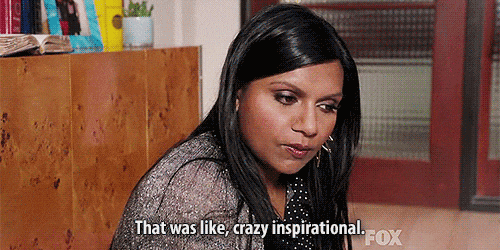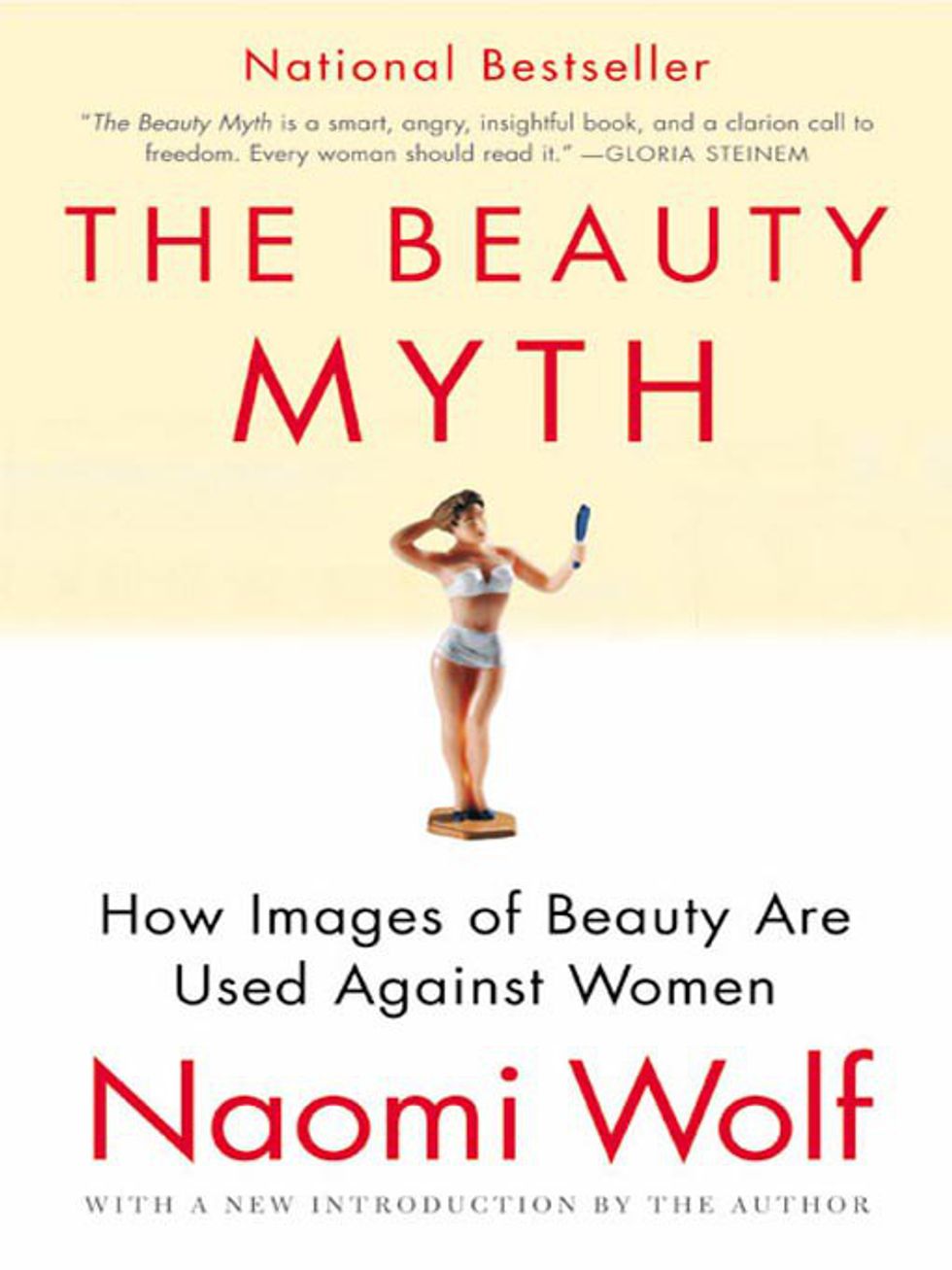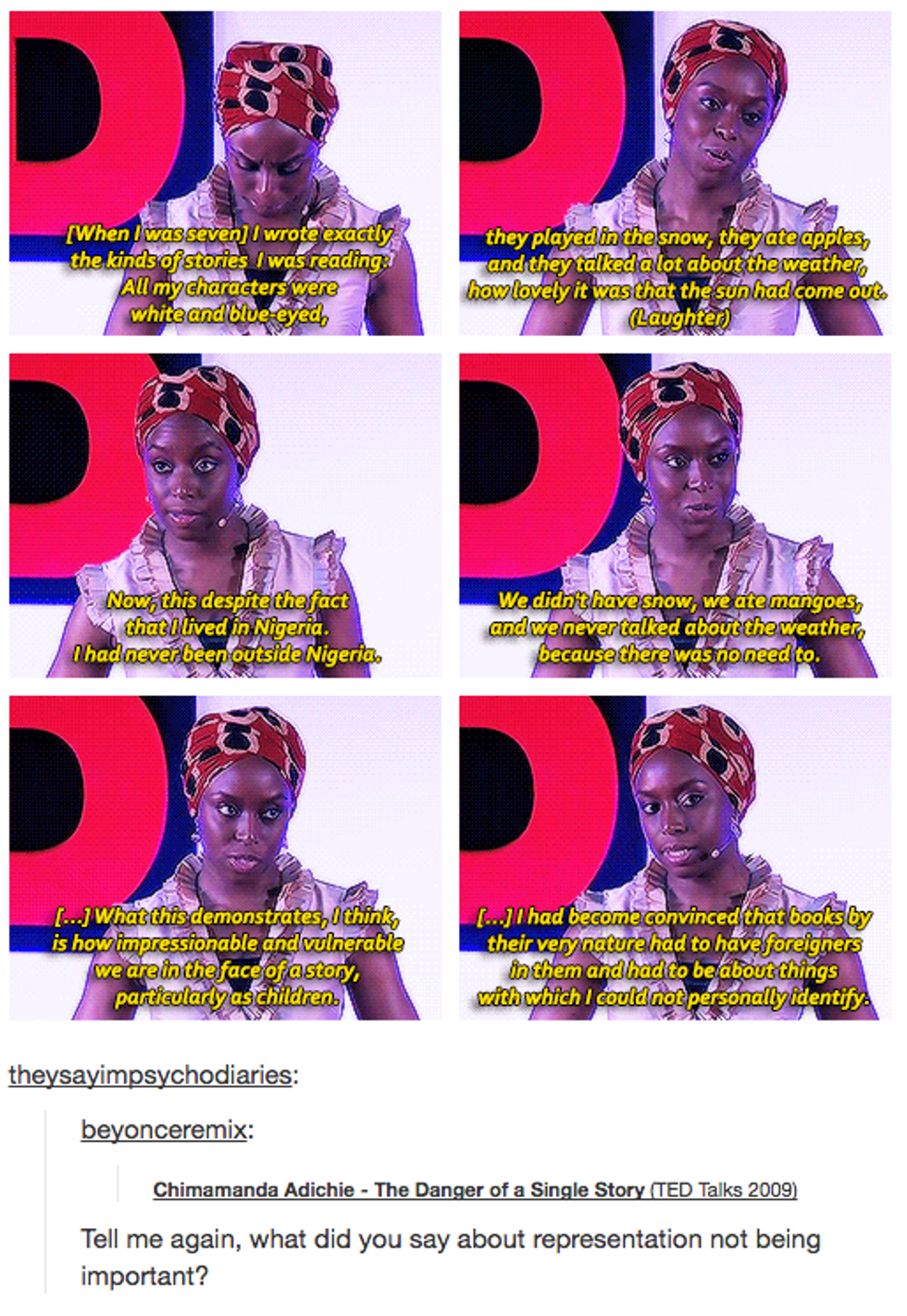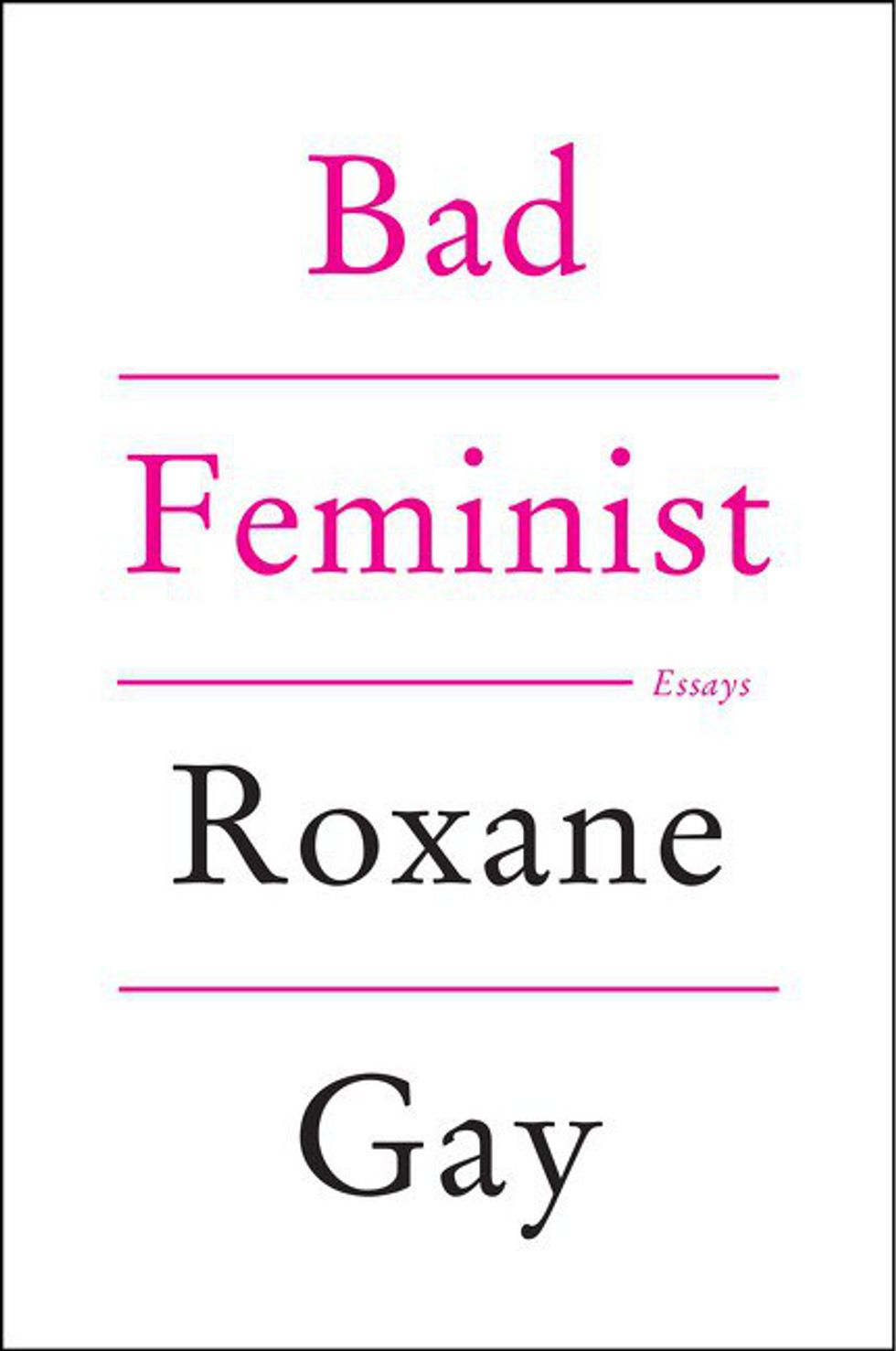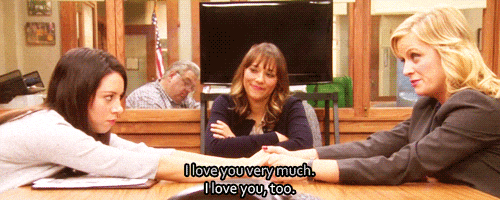Amy Poehler and Roxane Gay were my summer professors.
Only... not literally. But, literarily, yes.
Let me explain, before you think I'm trying to deceive you with a coy headline so you'll end up reading the entire article (that's exactly what I'm doing).
Let me tell you the story of a girl's love affair with books. She grew up in a culture that doesn't overtly encourage reading for pleasure. In that faraway country, she knew of public libraries from the American TV shows she watched, but she had never been in one. Eventually she moved to a more cosmopolitan city in that country in which she discovered bookshops and found books were glossy, hard things that gave you paper cuts. This girl had a lot of books at home, not because she liked them, but because her dad was a bibliophile and her American aunt and uncle always sent her books for Christmas. Later, this girl would move to another country that rhymes with United Skates and through the longest, most depressing two years of her life, would learn to find her solace and refuge in books. When she discovered her first book, bought by her dad to help her learn more English, picked by her mom because of the mesmerizing title, this girl fell fast and hard. Her parents probably didn't know it then, but they'd just bought the most significant gift they could've given this girl. Her mom had given her the gift of reading words when she was two. Now they were giving her a gym for her imagination to grow some muscles and give this girl the voice she had lost when she moved to a different country and had no idea who she would be.
Besides her incredibly smart and emotionally literate mother, this girl grew up around women counselors who taught her the kind of woman she wanted to be. Elizabeth Bennet taught her it was more important to fear not being herself than to fear anything else. C.S. Lewis' Orual taught her that women can be fierce leaders and loving sisters and skilled warriors. Jane Eyre taught her that being true to herself was more important than compromising who she was because of someone else's feelings. Susan Pevensie taught her not to be ashamed of her cleverness, and Lucy Pevensie taught her not to be ashamed of her faith.
But then, like in all stories where the beginnings are good and fruitful, something always comes up to change that. And while I was still in my (I am the girl from the story, FYI) heavenly realm of strong, skilled female heroines raising me into the woman I wanted to be, other voices I didn't want and didn't choose infiltrated my mind. In high school, I thought my intellectual accomplishments and the love of friends and family was enough to make me feel secure. In college, thirty pounds later, I didn't understand why that security was being shaken by thoughts in my head that detained me in front of a mirror and picked me apart with harsh comparisons until weight gain and loss became an obsession. Or why it gave me so much anxiety to eat in front of people because of what they might be thinking about me. "She enjoys her food too much. What a slob. No wonder she gained all that weight in college."
I did my best to live healthily. I still do. But recently I have learned that no matter how hard I try to keep my thoughts positive and outward-focused, there's a massive advertising enterprise whose sole intent is to keep women under the weight of their insecurities to make profits abound.
I found myself waking up to all the ways gender inequality is at work in my vicinity, not just in my head. I'd walk into the bookstore noticing for the first time that my favorite heroines, both fictitious and real, with groundbreaking truths for everyone, were being relegated to a corner of the bookstore called "Women's Fiction," "Women's Studies," or, God forbid, "Chick-lit." Eventually, there came the time when that F-word, thrown around in such political intensity, plopped down in front of me with arms crossed and said, "Whatcha gonna do about me, huh?" Feminism, so widely used, widely hated and widely feared, was being used to describe my beloved heroines as pioneers ahead of their time, and I had to learn what feminism really meant.
So, for the past three years, I have been learning what feminism means. I enlisted the following books from these amazing women and took a crash course on what they were saying about being a woman in the post-modern, heavily-sexist American culture I live in.
Grab your seats, take out pen and paper and give the floor to Professor Poehler.
Amy Poehler's "Yes Please"
Out of all the women I read about in these books, I fell in love with Amy the most because of how transparent she is. Not only does show her true self most deeply in her book, but you also realize that because of her honesty, Amy's character naturally bleeds into the comedy characters she portrays and writes. Amy is the better alternative to political correctness—she has a rare hybrid of humility and confidence that embraces all of life, bad and good. She showed me you can't be politically correct all the time and you can't change your whole being quickly and without context. Good things take time, and as we live this beautiful, broken life, the best we can be, at all times, is honest; and for Amy, honesty is best served with a good sense of humor and lots of loud laughs.
Mindy Kaling's "Is Everyone Hanging Out Without Me?" and "Why Not Me?"
Part of the reason I felt so displaced when I came to college was that I moved from a homogenous Mexican-American population into a predominantly Dutch, White population in which I realized, for the first time, what being Hispanic means. In desperation, I tried to clutch at the heroines of my childhood, only to realize, with a sting on my fingers, that they, too, were White. None of them had ever looked like me, even if we'd thought alike. I flipped through TV shows and movies and books and realized that very few women actually look like me in roles that are complex, thoughtful, intellectual, and desirable. Enter Mindy Kaling. In her two books, Mindy chronicles the story of her hard-earned fame in a media culture in which women of color who don't conform to stereotypes don't really write, produce, or create their own show, let alone be the protagonists. Mindy Kaling is all of these. She created the story she wanted to be in, the TV show she wanted to watch, because Hollywood wasn't about to do it for her. In her memoirs, she describes herself as a child of immigrants, a girl with a hearty appetite, outrageous, fashionable, intellectual, unashamed of being herself. This woman writes, directs, rocks a colorful wardrobe, and gives commencement speeches at Harvard. I took a lot of notes from Prof Kaling.
Naomi Wolf's "The Beauty Myth"
Do I beat myself up for beating myself up for what my body looks like when there are far more important things to think about? YES. ALL THE TIME. Which I’ve learned isn’t the way to free up your mind from worries about your body at all. Naomi’s The Beauty Myth discusses how the beauty ideal that media portrays has been used to paralyze women politically, economically and socially. She has explained to me that the insecurities and anxieties many women experience are due to the deep, guttural, and emotionally aggressive level advertisers target our deepest fears and longings. Through these tools of analysis and the knowledge that greedy advertisers, and not the woman sitting next to me, is my enemy, I can free up the space in my head to think of myself less and of others more, and to give my poor body a break!
Chimamanda Adichie's "Americanah"
Chimamanda is my author heroine, and while I read Americanah, I began to change the very essence of how I wrote my stories. Here’s what I learned from her:
They say “write what you know”—and I never realized that I could actually write what I know, because the stories from the heroines I grew up reading are exactly the kind of stories Chimamanda talks about—stories happening in Europe or the States, a lot of times centered around middle/upper-class White people and their concerns, which isn’t really my background. Not only did she teach me about writing, but by telling a true story of immigration, displacement, longing and race, Chimamanda put words into sentences that made sense to me to describe an experience of displacement I haven’t yet fully understood in my own life. Chimamanda’s words matter to me because my writing empowers me; it’s an anchoring, still place in a sea of so many loud voices. And if my stories are tied up and out of sight because my cultural background isn’t the one sitting on the cultural pedestal, how can I express and identify myself? Thank you, Prof. Adichie, for reminding us that we're free to write honestly about who we are!
Roxane Gay's "Bad Feminist"
I can’t say I left the best for last, but in my heart of hearts, I feel that I did. Roxane Gay’s book was life-changing for me. It depicted how well feminism can turn out in the context of intersectionality. What I mean by that is that for the most part, White Feminism has been occupying the front and center stage of history for a long, long time, mostly due to White privilege. Women were oppressed, yes, but it was more likely for White women to be the ones to have access to education and voting first. Now that women of color have been joining the movement, their experiences have filled out the missing gaps from an incomplete feminism. As a person who has occupied many “identities”—Afro-Latina, Black woman in America—Professor Gay does an amazing job in debunking the archetypal myth of feminists being hirsute, man-hating lesbians. She coined the term “Bad Feminist,” which to me, means that our ideals are perfect until we try to practice them. We are human, and we will keep on learning until we die, so we need some sort of margin of grace in which we can maneuver while help each other learn.
My Conclusion
I am a Bad Feminist. I am a feminist, but I still have a hard time getting past body image issues. I am a feminist, and I was raised in a home with traditional gender roles and happily married parents. I am a feminist, and I think shaving is a senseless social construct that I’m too self-conscious to forego.
Being a feminist isn't about following rules, but about fighting for gender equality that has been proven to benefit everybody. At the end of the day, it's what we do that matters. Our bodies may or may not impress. But it is our actions that make us beautiful.




